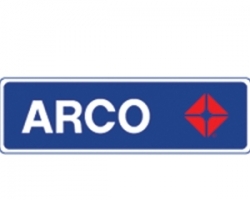ARCO/BP officials still favor using electricity to cook pollutants out of the soil and groundwater in the Bridgeport neighborhood in Seal Beach that was allegedly contaminated by the a gas station owned by the company. However, they said they are also willing to excavate the contaminated areas.
Despite the olive branch, the decision belongs to Orange County health officials.
Seal Beach, county and state officials met with ARCO/BP representatives at the Orange County Health Care Agency Wednesday, July 28.
According to notes provided to the media by Seal Beach City Manager David Carmany, during that meeting, an ARCO consultant made a presentation in favor of electrical resistance heating to the public officials who were present. A representative of the Bridgeport Technical Advisory Committee was also at the meeting.
According to Carmany, ARCO/BP officials and their consultants maintain that electrical resistance heating is the best way to decontaminate the area surrounding the ARCO station on Pacific Coast Highway. At least two leaks from the underground storage tanks have polluted the soil and ground water in the area since the 1980s. Last summer, evidence of gasoline vapor contamination was found in the soil near 25 homes in Seal Beach’s Bridgeport neighborhood.
Since that time, ARCO/BP has submitted two corrective action plans to the OC Health Care Agency. Bridgeport residents and the City Council criticized the first plan, which favored chemical oxidation to clean the contaminated area, and called on ARCO/BP to excavate, or “dig and haul,” the area.
The Health Care Agency also criticized the first plan and argued that “dig and haul” was the best option.
The second corrective action plan called for using electrical resistance heating to cook the toxic chemicals out of Bridgeport soil and groundwater. Bridgeport residents again called on ARCO/BP to “dig and haul.” The Seal Beach Environmental Quality Control Board also supported the “dig and haul option.”
The City Council recently sent a letter to the county Health Care Agency in support of the “dig and haul” option.
At the Wednesday meeting, Brett Trowbridge, chief executive officer of TRS—Atlantic Richfield Company/BP’s consultant on electronic resistance heating—provided public officials with an overview of ERH remediation projects in Bedford, Ohio and West Springs, Ill. “TRS has used ERH to clean up some 70 sites nationwide, including 10 sites in California,” Carmany wrote.
He said an ERH clean up could take nine months.
Carmany described ERH in his notes, based in part on a Wikipedia article: “Electrical resistance heating is an environmental remediation method that uses the flow of alternating current electricity to heat soil and groundwater and evaporate contaminants.”
According to Carmany’s notes, once the water reaches the boiling point, adding more energy creates a “phase change” that forms steam and removes the toxic chemicals.
However, not everyone agrees with ARCO’s position that electrical resistance heating is the best solution for the Bridgeport problem.
At the Monday, July 13 City Council meeting, Mario Facoboni, a member of the Bridgeport Technical Advisory Committee, said “It’s not a proven technology, first of all.”
According to Carmany’s notes, the final decision about how the Bridgeport site is to be contaminated rests with Richard Sanchez of the OC Health Care Agency.
In related news, on Thursday, July 22, Carmany met with Pat King, global vice president for Remediation Management and a representative from the international corporation’s London office.
“BP believes that electrical resistance heating is the best solution, but agreed to excavate the site (dig and haul),” Carmany wrote. “They want to do this together with ERH.”
As previously reported in the Sun Newspapers, all the decontamination methods described in the revised corrective action plan would require the demolition of the ARCO station on PCH.
“Any decision to ultimately rebuild the service station would be made by BP’s Retail Division, not the Remediation Division,” Carmany said.
The Bridgeport neighborhood is located in City Council District 3.




